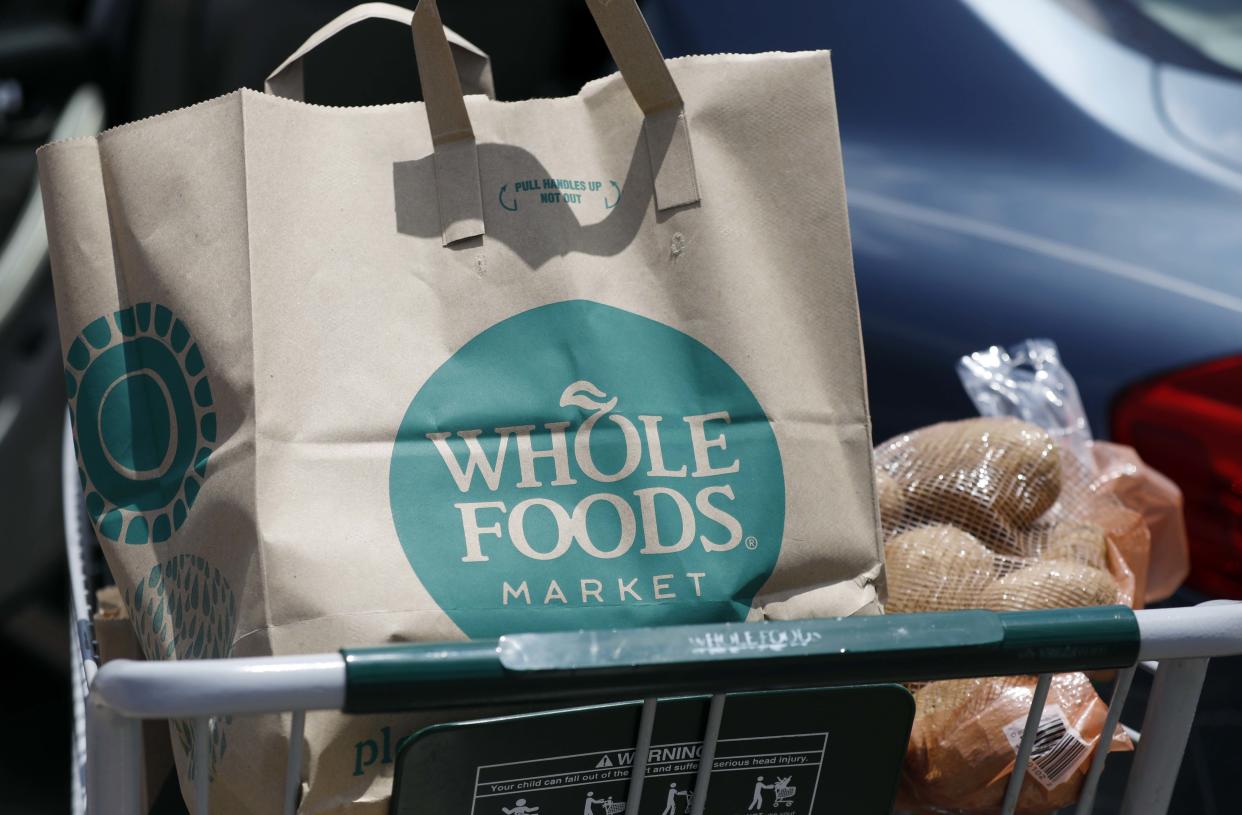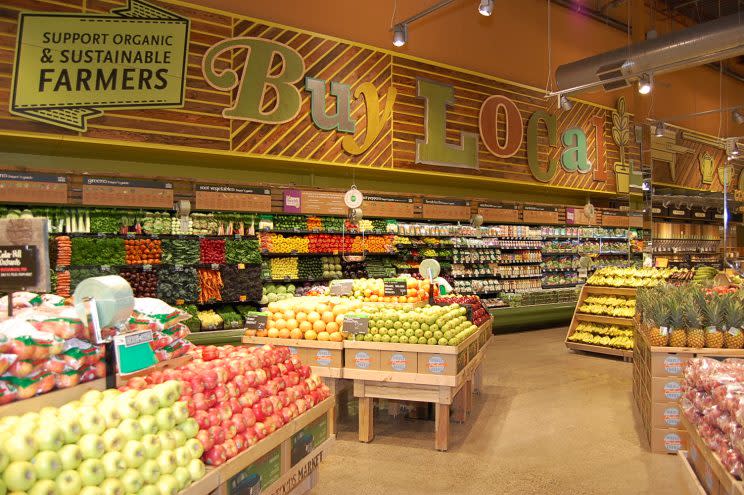Why Whole Foods might stay ‘Whole Paycheck’ under Amazon

When Amazon (AMZN) announced it was acquiring Whole Foods Market (WFM), “the everything store” didn’t detail plans about what it would do with the organic food giant. However, experts and consumers immediately began speculating about how Amazon might shake up Whole Foods’ business.
One of the popular theories was that Whole Foods would drop prices to steal customers from other grocery stores. Amazon would justify this move by pushing its other goods and services to its newfound customers.
However, not everyone believes Whole Foods’ notoriously high prices will plummet after the Amazon deal goes through.
Analysts from RBC Capital Markets pointed out that Amazon tends to buy companies for their strong brand identity and mostly leave them alone. As seen when Amazon acquired Zappos, it left its business model completely intact.
“[W]e’re skeptical that AMZN bought Whole Foods with the intention of materially changing its current cost structure or in-store value proposition,” RBC analysts said in a note out Monday.
In other words, consumers who got their hopes up that Whole Foods will lower prices may end up disappointed.
So what will Amazon do with Whole Foods?
Amazon may be looking to Whole Foods to understand how shoppers behave in a physical store. In other words, Amazon could want Whole Foods for its data on customers, as the Wall Street Journal recently noted.
James Thomson, a former senior manager in business development at Amazon, told the Wall Street Journal, “If the deal goes through, the combination likely will be powerful. Amazon and Whole Foods can join their online and in-store knowledge to better predict what goods to carry in each store.”
Once Amazon has a deeper understanding of customer behavior, it could learn how to strategically place products so customers are more likely to make impulse buys. In other words, Amazon could find more ways for loyal Whole Foods customers to spend their “whole paycheck.”

Whole Foods could provide another way for Amazon to “delight” customers
Once just an online retailer for books, Amazon has expanded to become a company known to anticipate customers’ desires in many areas. “No customer ever asked Amazon to create the Prime membership program, but it sure turns out they wanted it, and I could give you many such examples,” Amazon CEO Jeff Bezos wrote in a recent letter to shareholders.
Amazon will likely use its Whole Foods purchase as a way to continue anticipating customers’ needs. “Now that Amazon has acquired Whole Foods, Amazon now has an ability to leverage Whole Foods distribution capabilities and stores to delight customers,” Brittain Ladd, a supply chain and business strategy expert, told Yahoo Finance.
Whole Foods could be Amazon’s best customer
On Monday, Stratechery’s Ben Thompson cited yet another reason Amazon might want to buy Whole Foods: to help its grocery-delivery service, AmazonFresh, finally take off. Whole Foods could stock AmazonFresh groceries, essentially becoming an Amazon subsidiary and an Amazon customer at the same time.
“This is the key to understanding the purchase of Whole Foods: to the outside it may seem that Amazon is buying a retailer,” Thompson wrote. “The truth, though, is that Amazon is buying a customer — the first-and-best customer that will instantly bring its grocery efforts to scale.”
There is hope that Whole Foods could shed its “Whole Paycheck” image
Of course, there are reasons why some analysts and consumers expect Whole Foods to lower its prices, if the Amazon deal goes through.
This mega-deal will mean that Whole Foods probably won’t face the same pressure to make a profit that other grocery chains have, analysts from UBS stated in a note Monday morning.
“This could allow it to implement deeper price investments, which we believe are necessary for WFM [Whole Foods] to reaccelerate SSS [same-store sales] growth,” the analysts stated.
Whole Foods can cut prices because it doesn’t have to prioritize profits, due to the financial cushion Amazon could provide. Moreover, Amazon historically prioritizes growth over profits. By cutting prices, Whole Foods could boost same-store sales growth, or growth at stores that have been open for a year.
That’s a luxury that a competitor like Kroger (KR) doesn’t have, especially since it reports to shareholders who demand profits. Whole Foods’ competitors could take a hard hit if forced to cut prices to keep customers in the wake of Amazon’s acquisition.
Still, it’s not a given that these stores have anything to worry about. Given that this deal was put together quickly, it’s quite possible Amazon CEO Jeff Bezos doesn’t even know whether you’ll be paying less at Whole Foods.
Brooke DiPalma is a reporter at Yahoo Finance. Follow her on Twitter @BrookeDiPalma
Read more:
Why Amazon isn’t afraid of a Whole Foods flop
On Amazon buying Whole Foods: ‘The ramifications for all of retail are seismic’
Amazon cutting prices at Whole Foods will not cause deflation



